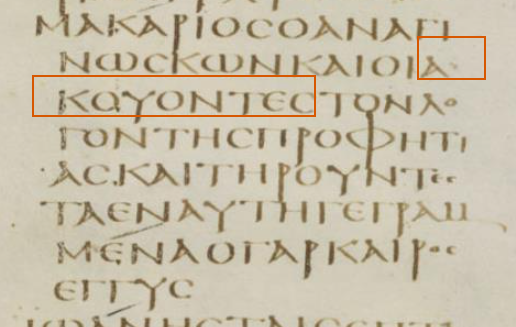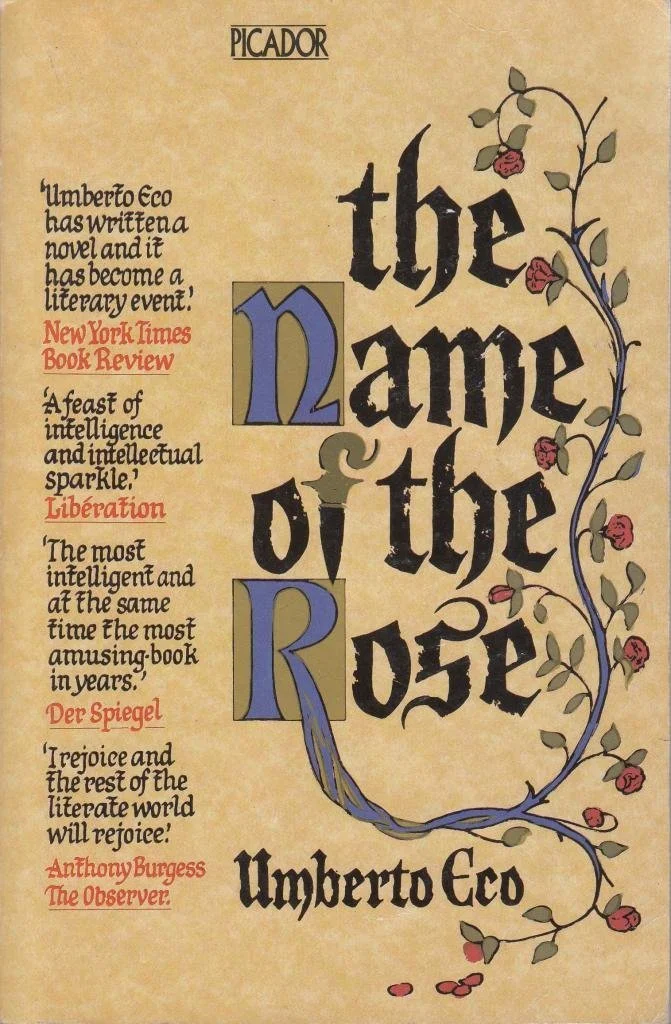Book Project
My monograph in preparation, Eco and Echoes: Intertextuality, Revelation and The Name of the Rose at 50, explores the Book of Revelation using the intertextual theories of semiotician and author Umberto Eco. John’s Apocalypse is an intertextual masterpiece, its 404 verses featuring some one thousand allusions to Jewish scripture (whether in Hebrew or Greek remains open). Prophecy and law undergird a vision of high Christology that rejects accommodation to pagan imperial cults and exhorts his congregations to see themselves as part of God’s cosmic battle with Satan and his agents: the Roman imperial state and emperor.
East Window of York Minster, York, UK
Revelation 1:3 in Codex Sinaiticus (www.codexsinaiticus.org). The plural participle akouontes highlighted
While Revelation’s intertextuality is well documented, I argue the field oversimplifies the audience(s) response by assuming homogenous, solitary readers. In so doing, we ignore John’s benediction: “Blessed is the one who reads and those who hear the words of prophecy” (Rev 1:3). John’s variegated audience whose members have heterogenous scriptural knowledge would detect, internalize, and reinterpret his hidden and revealed messages with graduated degrees of wisdom.
To address this lacuna, I turn to Umberto Eco and his own intertextual masterpiece, The Name of the Rose. Like Revelation, The Name of the Rose is replete with allusions to the great texts of the western intellectual tradition, its very title evoking without quoting Shakespeare, Bernard of Cluny, and Abelard. In his subsequently published postscript, Eco makes explicit an audience construction I argue is implicit in Revelation. Both stories are intelligible to naïve audiences, but such members certainly know that they are missing the full meaning of the text because they lack what Eco calls “encyclopedia competence.” Without knowledge of Aristotle’s Poetics and Anselm’s Prolegomena or of Moses and Daniel, such audiences lack the wisdom to understand the text as their respective authors intended. Those with a sophisticated extratextual repertoire are rewarded with a literary masterpiece.
Name of the Rose, Picador. The 1-Star reviews indicate naive reader frustration.
Allusions thus serve as shibboleths and riddles that stratify the audiences regarding encyclopedic competency. For Revelation, novice auditors without knowledge of Scripture might have understood the majesty of God but failed to see how the Lamb is Christ. Inchoate auditors might have recognized Rome as the city on “seven hills” and the promulgation of the Mark of the Beast as local elites promoting the imperial cults but missed allusions to Ezekiel’s theophany and God’s angelic executioners. Mature auditors possessing full encyclopedic competency would recognize John’s high Christological allusions to the Slain Lamb as the Living God and Babylonian desolation as Rome’s impending desolation.


